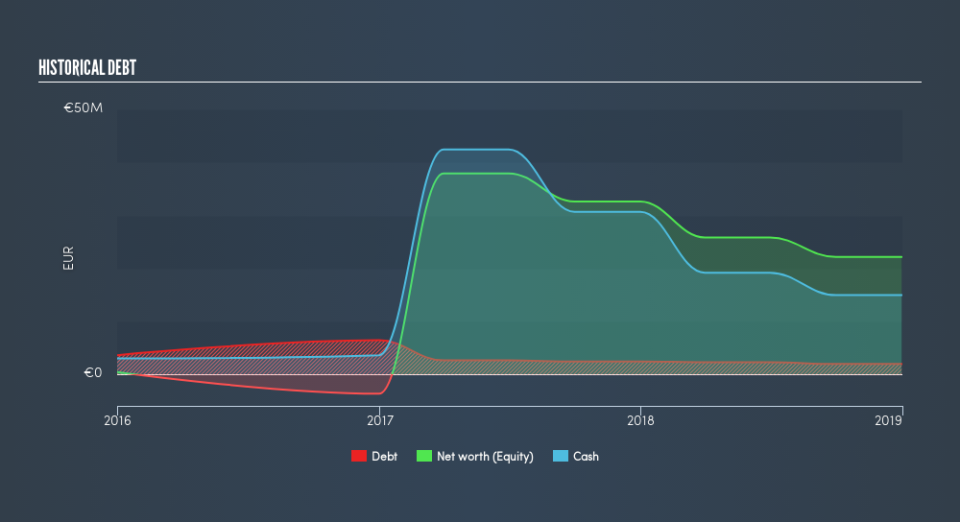Is Balyo (EPA:BALYO) Using Too Much Debt?

The external fund manager backed by Berkshire Hathaway's Charlie Munger, Li Lu, makes no bones about it when he says 'The biggest investment risk is not the volatility of prices, but whether you will suffer a permanent loss of capital.' It's only natural to consider a company's balance sheet when you examine how risky it is, since debt is often involved when a business collapses. We note that Balyo S.A. (EPA:BALYO) does have debt on its balance sheet. But should shareholders be worried about its use of debt?
Why Does Debt Bring Risk?
Generally speaking, debt only becomes a real problem when a company can't easily pay it off, either by raising capital or with its own cash flow. If things get really bad, the lenders can take control of the business. However, a more common (but still painful) scenario is that it has to raise new equity capital at a low price, thus permanently diluting shareholders. Of course, debt can be an important tool in businesses, particularly capital heavy businesses. The first thing to do when considering how much debt a business uses is to look at its cash and debt together.
See our latest analysis for Balyo
What Is Balyo's Debt?
As you can see below, Balyo had €1.99m of debt at December 2018, down from €2.47m a year prior. However, its balance sheet shows it holds €15.0m in cash, so it actually has €13.0m net cash.
How Healthy Is Balyo's Balance Sheet?
According to the last reported balance sheet, Balyo had liabilities of €22.8m due within 12 months, and liabilities of €998.4k due beyond 12 months. Offsetting these obligations, it had cash of €15.0m as well as receivables valued at €23.5m due within 12 months. So it actually has €14.6m more liquid assets than total liabilities.
This surplus suggests that Balyo is using debt in a way that is appears to be both safe and conservative. Given it has easily adequate short term liquidity, we don't think it will have any issues with its lenders. Succinctly put, Balyo boasts net cash, so it's fair to say it does not have a heavy debt load! When analysing debt levels, the balance sheet is the obvious place to start. But it is future earnings, more than anything, that will determine Balyo's ability to maintain a healthy balance sheet going forward. So if you're focused on the future you can check out this free report showing analyst profit forecasts.
Over 12 months, Balyo reported revenue of €23m, which is a gain of 42%. With any luck the company will be able to grow its way to profitability.
So How Risky Is Balyo?
We have no doubt that loss making companies are, in general, riskier than profitable ones. And in the last year Balyo had negative earnings before interest and tax (EBIT), truth be told. And over the same period it saw negative free cash outflow of €15m and booked a €12m accounting loss. Given it only has net cash of €15m, the company may need to raise more capital if it doesn't reach break-even soon. Balyo's revenue growth shone bright over the last year, so it may well be in a position to turn a profit in due course. Pre-profit companies are often risky, but they can also offer great rewards. For riskier companies like Balyo I always like to keep an eye on the long term profit and revenue trends. Fortunately, you can click to see our interactive graph of its profit, revenue, and operating cashflow.
Of course, if you're the type of investor who prefers buying stocks without the burden of debt, then don't hesitate to discover our exclusive list of net cash growth stocks, today.
We aim to bring you long-term focused research analysis driven by fundamental data. Note that our analysis may not factor in the latest price-sensitive company announcements or qualitative material.
If you spot an error that warrants correction, please contact the editor at editorial-team@simplywallst.com. This article by Simply Wall St is general in nature. It does not constitute a recommendation to buy or sell any stock, and does not take account of your objectives, or your financial situation. Simply Wall St has no position in the stocks mentioned. Thank you for reading.

